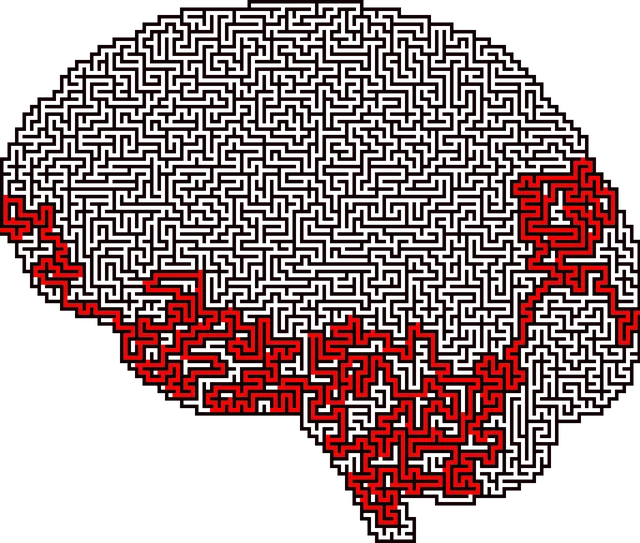Mental wellness apps must cater to diverse user needs, offering tailored solutions for various conditions through cognitive-behavioral therapy and mindfulness exercises. Features like stress management, time awareness, guided meditations, and community support appeal to broad audiences. The Denver Kaiser Mental Health Classes highlight the demand for personalized emotional regulation tools, progress tracking, goal setting, and self-care reminders. Intuitive interfaces and marketing strategies, including SEO with keywords like "Denver Kaiser mental health classes," are crucial for success in a competitive market.
In today’s digital age, mental wellness apps are becoming indispensable tools for managing stress, anxiety, and depression. This comprehensive guide explores the development of effective mental health applications, drawing insights from the innovative Denver Kaiser mental health classes. We’ll delve into understanding user needs, designing intuitive interfaces, and implementing key features that foster positive mental health outcomes. Additionally, we’ll discuss marketing strategies to reach a wider audience and monetization models for sustainable app development.
- Understanding Mental Wellness App Needs: A Comprehensive Overview
- Denver Kaiser Mental Health Classes: Unique Insights for App Development
- Key Features to Include in a Mental Wellness App
- Designing User-Friendly Interfaces and Experience (UX/UI) for Mental Health Apps
- Marketing and Monetization Strategies for Mental Wellness Apps: Reaching Your Audience
Understanding Mental Wellness App Needs: A Comprehensive Overview

Mental wellness apps have emerged as a powerful tool to support individuals’ mental health and well-being. Understanding the diverse needs of users is essential for developers aiming to create effective solutions. One key aspect is recognizing that mental health encompasses various conditions, from anxiety and depression to more complex disorders, each requiring tailored approaches. Apps should offer a comprehensive range of features, such as cognitive-behavioral therapy techniques, mindfulness exercises, and personalized coping strategies.
Additionally, incorporating Empathy Building Strategies can enhance user engagement. Encouraging open communication and providing spaces for users to share their experiences fosters a sense of community and understanding. Cultural Sensitivity in Mental Healthcare Practice is another critical element, ensuring that apps cater to diverse cultural backgrounds and beliefs. Incorporating features like adaptable content and inclusive language can significantly impact the app’s accessibility and appeal, especially for Denver Kaiser mental health classes enthusiasts. Effective stress management tools, including relaxation techniques and time-management strategies, should also be integrated to cater to a wide range of users seeking holistic mental wellness solutions.
Denver Kaiser Mental Health Classes: Unique Insights for App Development

The Denver Kaiser Mental Health Classes offer a unique lens into the needs and preferences of individuals seeking mental wellness support. These classes cater to diverse populations, providing insights into effective strategies for managing stress, anxiety, and other common mental health challenges. By observing how these programs engage participants and foster growth, developers can gain valuable inspiration for app design. For instance, the integration of interactive tools like guided meditations and mindfulness exercises has proven popular, suggesting a potential for digital platforms to incorporate similar features.
Moreover, the Denver Kaiser classes emphasize practical skills, such as conflict resolution techniques and social skills training, that users often desire in a mental wellness app. The focus on emotional regulation, another key area of interest, indicates a demand for personalized resources that help individuals understand and manage their emotions effectively. App developers can leverage these trends to create engaging, user-centric experiences, ensuring the digital tools meet the evolving needs of those seeking support for their mental health.
Key Features to Include in a Mental Wellness App

In today’s digital age, mental wellness apps have become invaluable tools for individuals seeking support and guidance for their emotional well-being. When developing such an app, incorporating key features that cater to diverse user needs is essential. One prominent aspect to focus on is providing a variety of Denver Kaiser mental health classes accessible through the app. These classes can cover various topics like mindfulness, stress reduction methods, and inner strength development, allowing users to learn and practice techniques tailored to their specific mental health concerns.
Additionally, integrating features for tracking progress, setting personalized goals, and receiving regular reminders for self-care activities can significantly enhance user engagement. Another crucial element is implementing a supportive community aspect where users can connect with like-minded individuals, share experiences, and offer encouragement. For mental health professionals, including tools for Risk Management Planning enables them to effectively support their clients while ensuring they maintain ethical standards and professional boundaries.
Designing User-Friendly Interfaces and Experience (UX/UI) for Mental Health Apps

Designing user-friendly interfaces and experiences (UX/UI) is paramount for mental health apps, as it significantly influences user engagement and effectiveness. Apps like Denver Kaiser’s mental health classes prioritize simplicity and accessibility to cater to a wide range of users seeking Depression Prevention or Crisis Intervention Guidance. A well-designed UX/UI ensures that features are intuitive and easily navigable, encouraging consistent app usage.
Visual aesthetics, color schemes, and layout play crucial roles in creating calming and supportive atmospheres, aligning with the Mind Over Matter Principles. Incorporating interactive elements, progress trackers, and personalized recommendations enhances user experience while promoting proactive mental wellness management. By focusing on UX/UI excellence, mental health apps can foster a sense of comfort and control, ultimately contributing to improved user outcomes.
Marketing and Monetization Strategies for Mental Wellness Apps: Reaching Your Audience

Marketing and monetization are key aspects to consider when developing a mental wellness app. To reach your target audience effectively, especially in a competitive market like Denver where Kaiser mental health classes are readily available, focus on creating content that resonates with users seeking alternative solutions for their mental well-being. Utilize SEO strategies by incorporating relevant keywords such as “Denver Kaiser mental health classes” to boost discoverability.
Diversify your marketing approach by leveraging social media platforms and influencer partnerships to build a community around your app. Offer free trials or introductory sessions to attract new users, with the promise of continuous support through in-app features like confidence boosting exercises, inner strength development programs, and compassion cultivation practices. These strategies not only help in user acquisition but also foster long-term engagement, ensuring sustainable revenue streams for your mental wellness app.
Developing a comprehensive mental wellness app requires understanding user needs, leveraging unique insights from programs like Denver Kaiser’s mental health classes, integrating key features for effectiveness, and crafting intuitive UX/UI designs. Additionally, successful marketing and monetization strategies are vital to reach and support audiences seeking mental health resources. By combining these elements, developers can create apps that foster well-being and make professional mental healthcare more accessible in today’s digital landscape.





